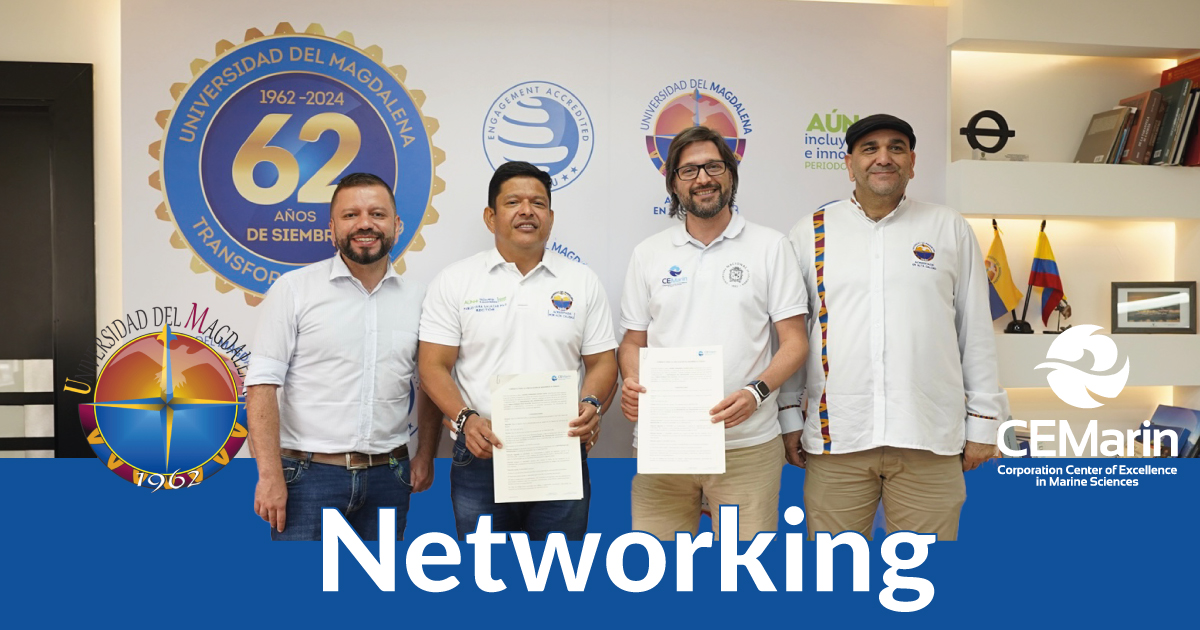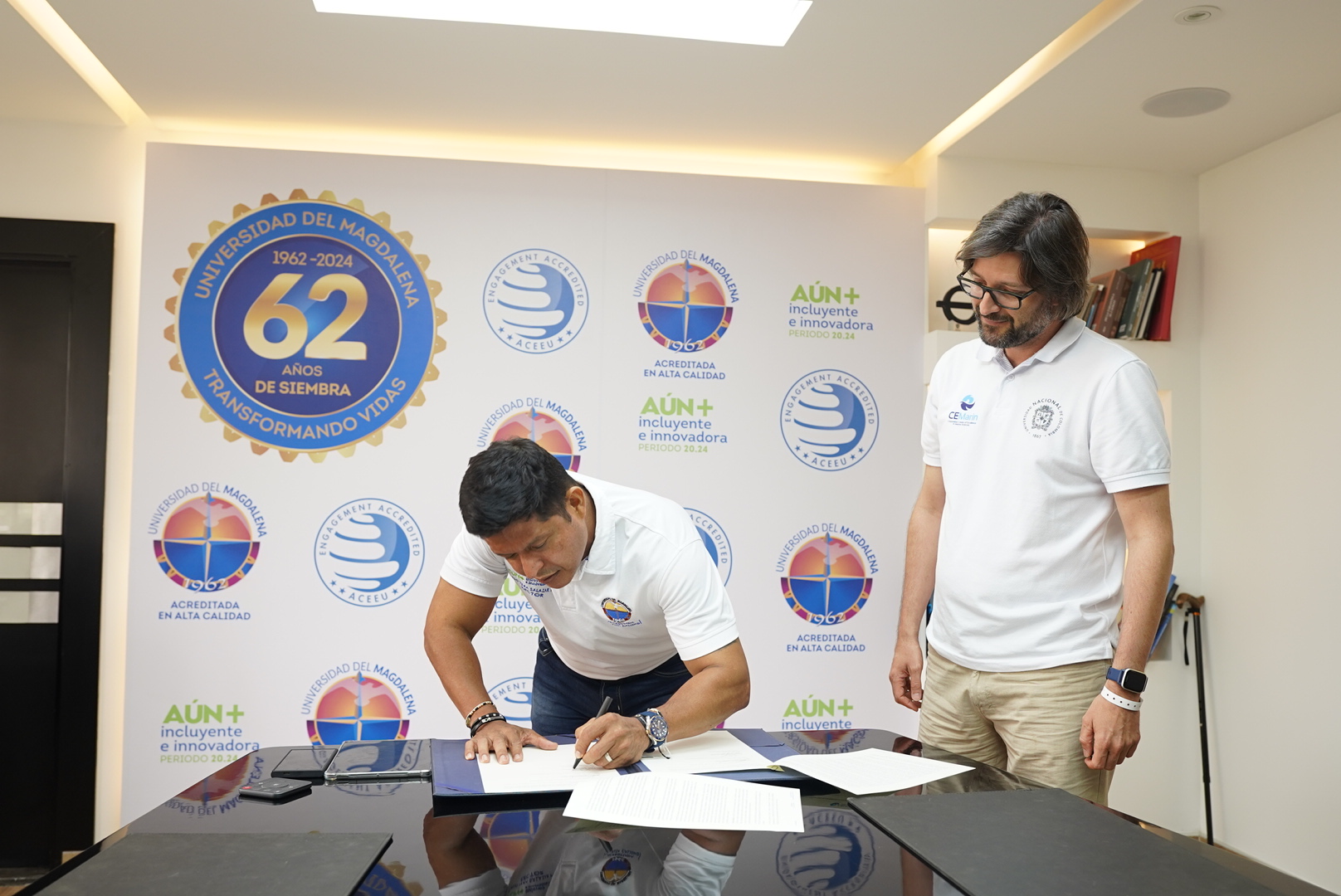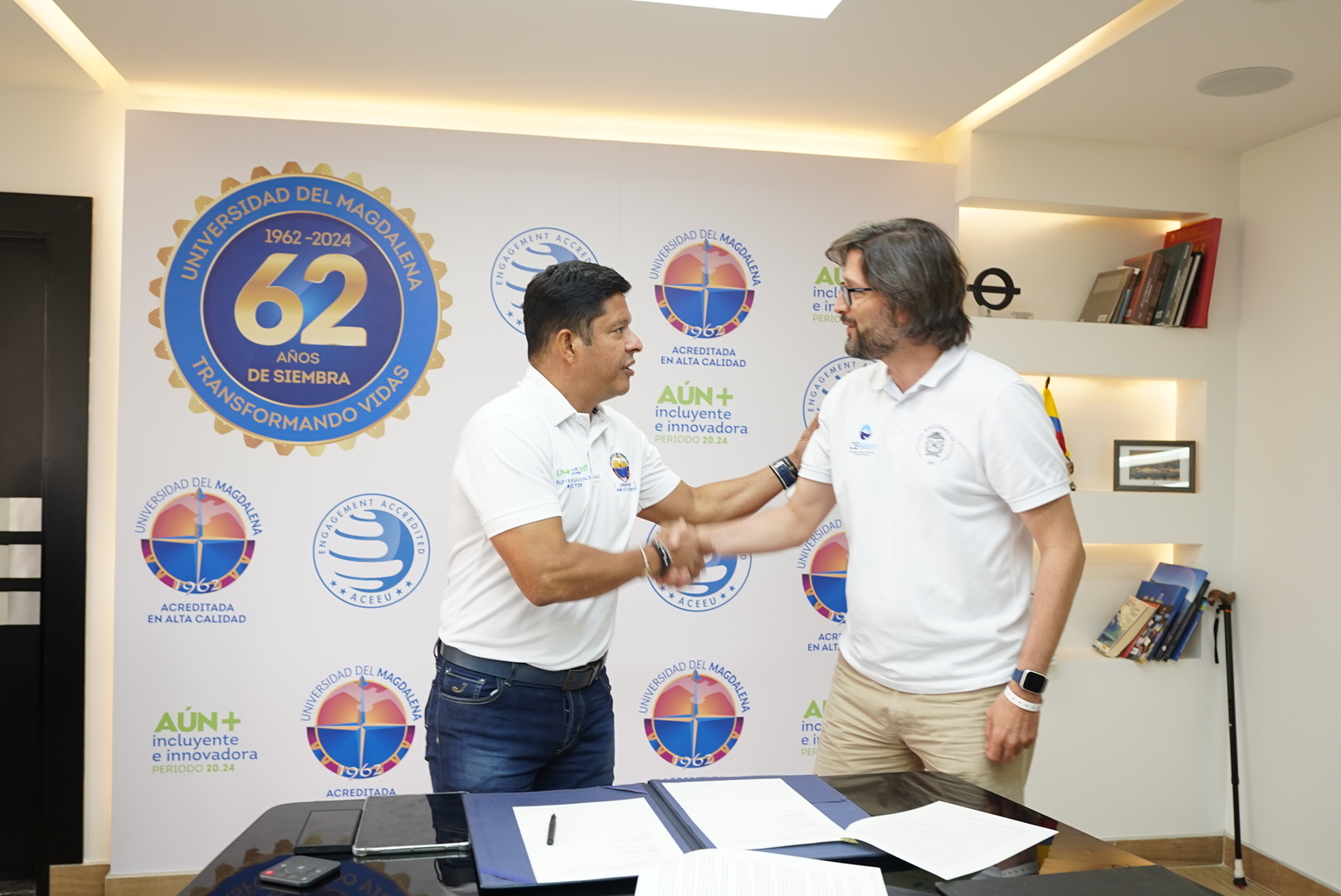
26 Jul Institutional alliance for the marine-coastal territories of the Caribbean region
On June 13th, the University of Magdalena formalized its collaboration with CEMarin. This institutional initiative aims to contribute to the sustainable and regenerative development in the marine-coastal territories of the Caribbean region, positioning the university as a leader in marine coastal research in Colombia.
This institutional collaboration represents a significant step towards the consolidation of both parties’ visions and strategic objectives. It also opens new opportunities for networking in both national and international collaborations, enhancing capacities to manage resources and develop high-impact projects and programs that respond to the current challenges of our oceans.

The University of Magdalena has been working arduously to foster Colombia’s bio-oceanic identity by launching last year its new academic program in Coastal Marine Engineering, unique in Colombia and Latin America. This initiative took five years to build and integrate science and humanities, being open to various disciplines such as marine biology, oceanography, environmental engineering, civil engineering, fisheries engineering, anthropology, law, trading and tourism, as mentioned by Pablo Vera, the university’s rector.
For these reasons, the collaboration between the University of Magdalena and CEMarin is a strategic alliance that drives institutional, academic, and community growth, contributing to the sustainable and regenerative development of the marine-coastal territories of the Caribbean and Colombia in general.
Among its main components, the inclusion of communities and collaboration with local, regional, and national authorities to develop and promote public policies. It also represents an academic opportunity to empower and strengthen students’ knowledge in a sustainable manner. Aligned with international standards, improving the competitiveness of academic programs, and adding high-impact value to education.
This alliance will significantly contribute to the conservation and sustainability of marine ecosystems and the current issues they face. As an ally, the University of Magdalena, with its significant influence in the Colombian Caribbean, offers a valuable regional perspective and a strong commitment to being leaders in Marine Coastal Research in Colombia, starting with the sustainable and regenerative development in the marine-coastal territories of the Caribbean and its territories.

In summary, this union will strengthen the research, monitoring, education, and management capacities of both parties, allowing for the conservation of marine ecosystems in Colombia, as stated by John Taborda, professor of renewable energies at the University of Magdalena. By working together, the main objective of the University of Magdalena and CEMarin is to become future leaders in Marine Coastal Research in Colombia, generating a positive impact on the health of our oceans and the well-being of the communities that depend on them.
We thank the University of Magdalena for being part of our CEMarin team. We are confident that mutual growth and collaborative support will be reflected in the conservation of our ecosystems and communities, aligned with the Sustainable Development Goals of the United Nations.


